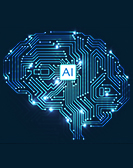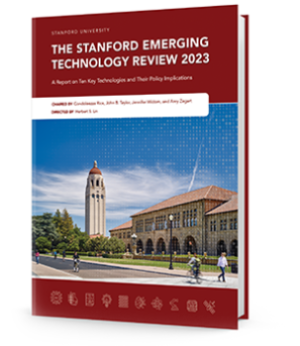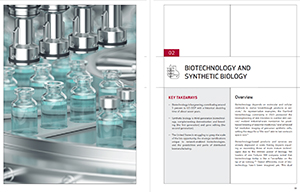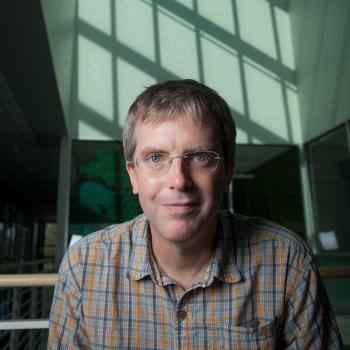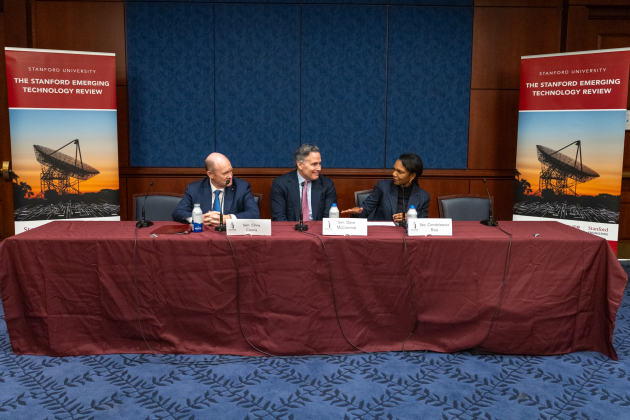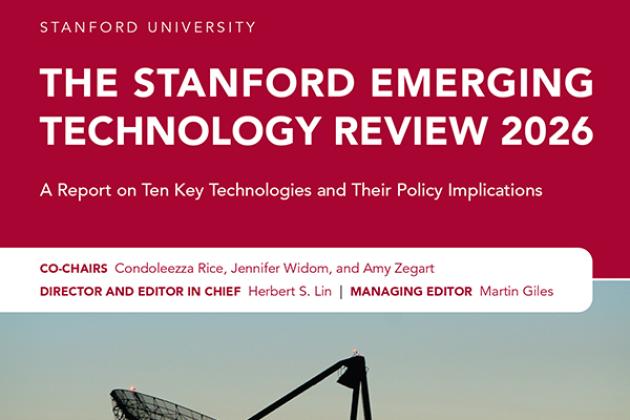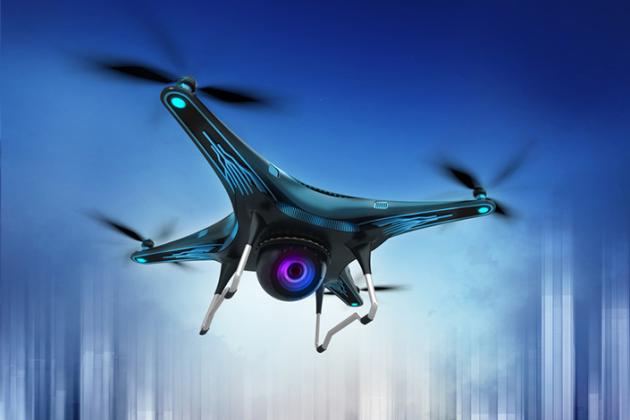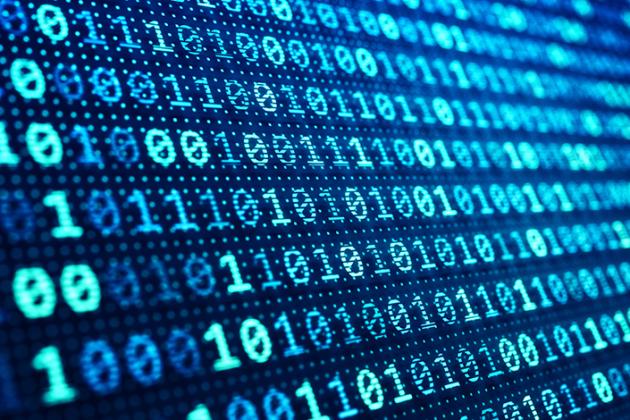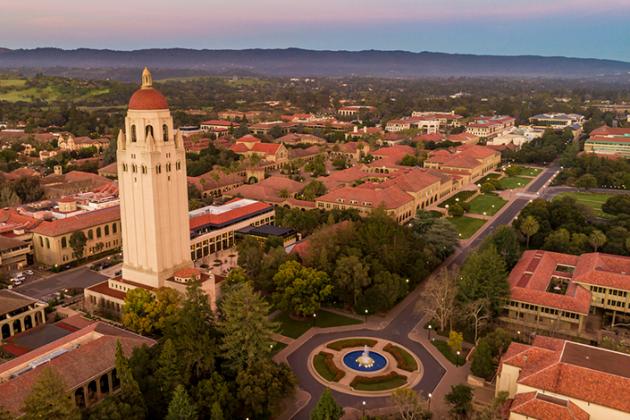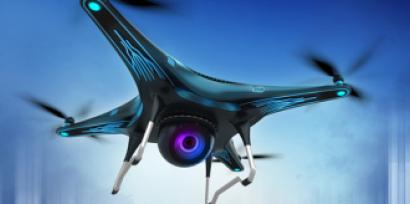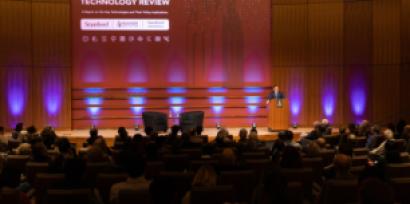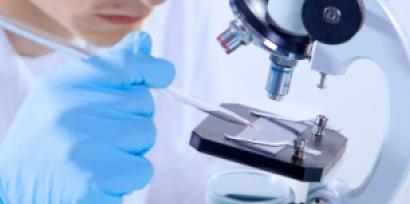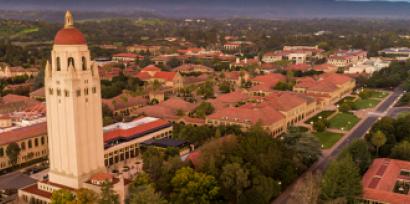Overview
Biotechnology creates products or services in partnership with biology. For example, skin microbes can be engineered to combat skin cancer and essential medicines can be brewed from yeast at industrial scales. Biotechnology, already a huge industry—5 percent of GDP— is expected to grow greatly. Synthetic biology, a subset of biotechnology, builds on genetic engineering to focus on improving the composition and functions of living systems. DNA sequencing and synthesis are two fundamental technologies underlying synthetic biology. DNA sequencers are machines that read or decode specific DNA molecules, while synthesizers write user-specified sequences of DNA. The cost of sequencing a human genome has fallen from $10,000 to around $600 in the last decade, while the cost of gene synthesis dropped from $4/base (2003) to $0.04/base (2023).
Key Developments
Synthetic biology has applications in medicine, agriculture, manufacturing, and sustainability. DNA and RNA synthesis underlie all mRNA vaccines, including those for COVID-19. Synthetic biology can also cultivate drought-resistant crops and enable cells to be programmed to manufacture medicines or fuel on an agile, distributed basis.
The “superpower” of the internet—the ability to rapidly move information—can amplify the “superpower” of biology: the ability to grow and assemble complex objects locally. For example, DNA sequencers and synthesizers connected to the internet could routinely allow researchers to distribute vaccines against viruses around the world faster than a pandemic can spread. Developed wisely, such capabilities could lead to biodefense and public health systems operating at light speed. Ignored or mismanaged, such capabilities could result in widespread access to bioterror capabilities or worse. Artificial intelligence will likely supercharge synthetic biology, starting with molecular, pathway, and cellular design.


